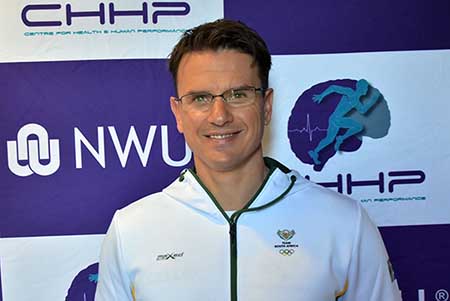There is no greater athletics stage than the Olympic Games, and there are few sports events with such a colourful history.
For every glorious Game filled with dramatic, rich memories, there are also the Games that were accompanied by terrible heartache. London 2012 and Atlanta 1996 fall into the former category, and the tragedy of Munich in 1972 into the latter. Berlin 1936 is engraved in the annals of our history for more reasons than Jesse Owens’s achievements, and Korea 1988 will be remembered more for the 100 m dope scandal than for the Games themselves.
But how do athletes prepare themselves for Tokyo 2021? A deadly virus, postponements, disruptions, lockdowns and the prospect of empty pavilions churn through the head of every athlete. As far as the South African team is concerned, the world-renowned sports psychologist from the North-West University (NWU), Dr Pieter Kruger, is also in Tokyo as a member of the management team to share his expertise.
As sports psychologist, how will you help the athletes to cope with the unique challenges of Tokyo 2021?
It will be a great challenge, but we have observed the athletes carefully over the past 12 months and are thoroughly aware of their own and unique needs. Covid-19 and the lockdowns have had an enormous impact on the general behaviour patterns of the athletes. The same will apply in Tokyo. In the Olympic village, athletes will have to train with masks on. This is not normal and will require a mind shift.
We started with workshops for the athletes a number of weeks ago, because in these times it is everything but business as usual. We have a framework and we have a plan. We realised early on that things will not be what we hoped, and that we would have to be proactive.
I have been involved in a few tours, like the one with the Springbok rugby team in 2015. Although Tokyo will have other challenges, the attitude of the athletes and the management will be crucial.
Do you think athletes will struggle to retain their focus?
It will be easier for some athletes than for others. We should also keep the culture shock in mind. I do think that the splendour of the event will serve as additional motivation to the athletes. If I think back to the 2012 Olympic Games in London, I remember that it seemed as if the athletes had received an additional dose of energy. They know they are now on the world stage and this brings out the best in most of them.
Should the adjustments be easier for older athletes than for their younger colleagues?
Research has shown that there is a correlation between age and problem-solving. The more you are away from home, the more skills you acquire to cope with unique situations. Naturally, people are not all the same, but it remains an asset to be able to learn from the past.
What were the biggest lessons that you as a sports psychologist learnt over the past few years?
Naturally, we never thought in our wildest dreams that something like the Covid-19 pandemic would occur, and it was fascinating to see how people handled it. People’s incredible adaptability astounded me, and this applies to athletes too. Their drive to perform made it easy for them to adapt – they do not have a choice. It is not only their income – that drive is part of their being, and they will give everything to achieve success.
Are you looking forward to the experience?
It is a great honour and privilege to me. I am not going to the Games for fame or the spotlight, I am going to help make a difference. I know there are going to be a few unforeseen problems, but we as the South African team are in Tokyo to grab life with both hands.

Dr Pieter Kruger
